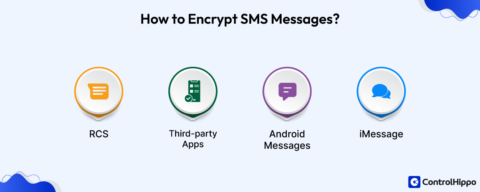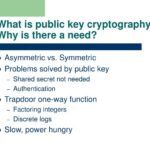In an increasingly interconnected world, the security of our digital communications is of paramount importance. One ubiquitous form of communication is the Short Message Service (SMS), commonly known as text messaging. While texting has become an integral part of our daily lives, a pressing question looms: Are SMS messages encrypted or wide open? This inquiry not only reveals the dynamics of SMS technology but also invites a broader examination of communication security in general.
To begin with, it is essential to understand what encryption entails. Encryption is a technique used to convert information into a coded format, rendering it unreadable to unauthorized users. In the realm of digital communication, encryption serves as a protective barrier, ensuring that messages remain confidential and secure during transmission. However, when it comes to SMS, the situation is rather complex.
Traditional SMS messages are transmitted over the Global System for Mobile Communications (GSM) network, which operates on a series of protocols established decades ago. Unfortunately, these protocols were not designed with robust security measures in mind. Consequently, SMS messages are typically sent in plain text, making them susceptible to interception and eavesdropping. This vulnerability raises significant concerns about privacy, especially in an age where personal information is frequently targeted by malicious entities.
Despite the inherent weaknesses of SMS security, there are modern alternatives that provide enhanced protection. One such alternative is the use of end-to-end encryption (E2EE) in messaging applications like Signal, WhatsApp, and Telegram. Unlike SMS, these platforms encrypt messages so that only the sender and the recipient can read them. Even the service providers cannot access the content, fortifying the communication against potential breaches. The proliferation of these encrypted messaging services highlights a growing demand for secure communication, particularly among individuals concerned about their privacy.
The recognition of SMS vulnerabilities has prompted various stakeholders to advocate for improvements in mobile communication security. As a result, several mobile network operators (MNOs) have begun to implement measures that enhance SMS security. For example, some networks now offer services that secure SMS messages through Secure Socket Layer (SSL) or Transport Layer Security (TLS) encryption. However, it is imperative to recognize that these measures are still relatively limited in scope compared to the comprehensive encryption offered by dedicated messaging applications.
Moreover, the rise of alternative messaging platforms reflects a broader phenomenon: the increasing awareness of digital security among the general populace. More individuals are now cognizant of the potential risks associated with unsecured communications, leading to a gradual shift towards encrypted platforms. This development can be attributed to high-profile data breaches and leaks that have exposed the fragility of personal data, catalyzing public discourse around privacy and security.
Yet, the fascination with SMS encryption transcends mere technological advancements; it is also rooted in the societal implications of communication privacy. The ability to communicate confidentially is a cornerstone of personal freedom, allowing individuals to express themselves without fear of repercussions. This freedom is essential in various contexts, such as political dissidence, whistleblowing, or even sharing intimate thoughts with loved ones. Thus, the question of whether SMS messages are encrypted is not merely a technical inquiry but a profound reflection of our values regarding privacy and communication.
Furthermore, as our reliance on digital communication continues to grow, the potential ramifications of insecure SMS messaging become increasingly pronounced. The implications extend beyond personal conversations to include corporate communications, legal discussions, and sensitive governmental exchanges. The specter of eavesdropping and data breaches looms large, prompting organizations to reconsider their reliance on SMS for transmitting confidential information.
The impact of regulatory frameworks must also be acknowledged in the conversation surrounding SMS encryption. Various governments and regulatory bodies are grappling with the balance between privacy and security. In certain jurisdictions, there are growing calls for legislation that would mandate stronger encryption standards for all forms of digital communication, including SMS. Conversely, there are concerns that overly stringent regulations could stifle innovation and technological advancement.
In conclusion, the question of whether SMS messages are encrypted or wide open reveals a complex interplay between technology, privacy, and societal norms. While traditional SMS remains vulnerable to interception and unauthorized access, the rise of encrypted messaging applications demonstrates a collective effort to enhance communication security. The fascination with this topic underscores a broader societal shift toward prioritizing privacy in an era marked by rapid technological evolution. As individuals and organizations alike navigate the digital landscape, understanding the nuances of SMS security is crucial for safeguarding personal and sensitive information. In a world where every message counts, the call for secure communication has never been more urgent.








Leave a Comment